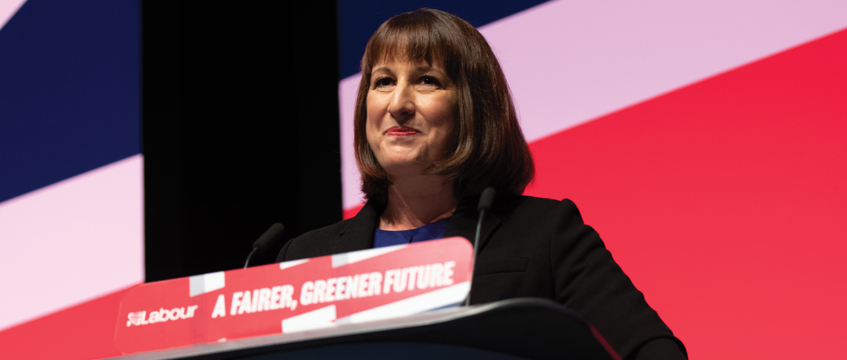Labour’s vow to “abolish” business rates has been welcomed by experts in the industry – but only if “abolish” actually means “fundamentally reform”.
At Labour’s annual conference in Liverpool this week, shadow chancellor Rachel Reeves (pictured) told delegates: “We will abolish business rates and replace them with a fairer system fit for the 21st century.”
Reeves said rates were “the biggest tax problem facing British businesses”, adding that Labour would “level the playing field”.
Proposals for reform come as the markets reel from the government’s recent mini-Budget, which failed to even mention business rates.
“This is an interesting promise to make on the back of the chancellor’s mini-Budget,” said Ryan Jones, rates partner at Cluttons. “But realistically any scrappage will create a black hole in finances, which will mean a new system of sorts replacing it.”
The pledge is not exactly fresh news. Reeves said much the same thing almost exactly a year ago in Brighton. Last year the industry was wary about “scrapping” the system altogether, but now it appears that the word is being used more as political colour than as a true statement of intent.
“Closer inspection implies that what Labour is really meaning is reform,” said John Webber, head of business rates at Colliers.
“We have had constructive discussions with the Labour Party and believe the statement really means ‘we are going to abolish business rates in its current form’ – in other words, bring in significant reform. And significant reform is what we would support.”
Dominic Curran, property policy adviser at the British Property Federation, said: “I think that ‘scrapping’ is doing a lot of heavy lifting in the policy. ‘Scrapping’ sounds more impressive than ‘reforming’, but I think the latter is probably a better descriptor.”
Reeves herself has made direct reference to more frequent valuations. “It sounds like it will still be a property tax based on regular, possibly annual, revaluations,” Curran said.
Labour is also thought to be wanting to end phased downward transition, with instant reductions in bills where values fall, and for rates to be responsive to economic changes. It is also interested in using the system to incentivise moves into empty premises, as well as green improvements.
Labour is keen to prove itself as a party that business can do business with, with Keir Starmer saying in his conference speech: “I am not just pro-business, I want to partner with business. So we will scrap business rates, level the playing field for start-ups and the high street.”
And Reeves’ eagerness to listen to what business wants raises hopes that there would be significant improvements. “An end to transitional relief and possibly getting rid of the requirement to raise the same amount annually, allowing for appeals and inflation,” said Curran. “That would be a big win.”
Webber said: “It seems that Labour is listening to the criticisms of the current system – criticisms that both the Conservatives and Lib Dems (when in coalition) have been ignoring. The current business rates system is not fit for purpose and countless ministers have just tinkered around the edges, despite numerous reviews of the system.”
To send feedback, e-mail piers.wehner@eg.co.uk or tweet @PiersWehner or @EGPropertyNews











